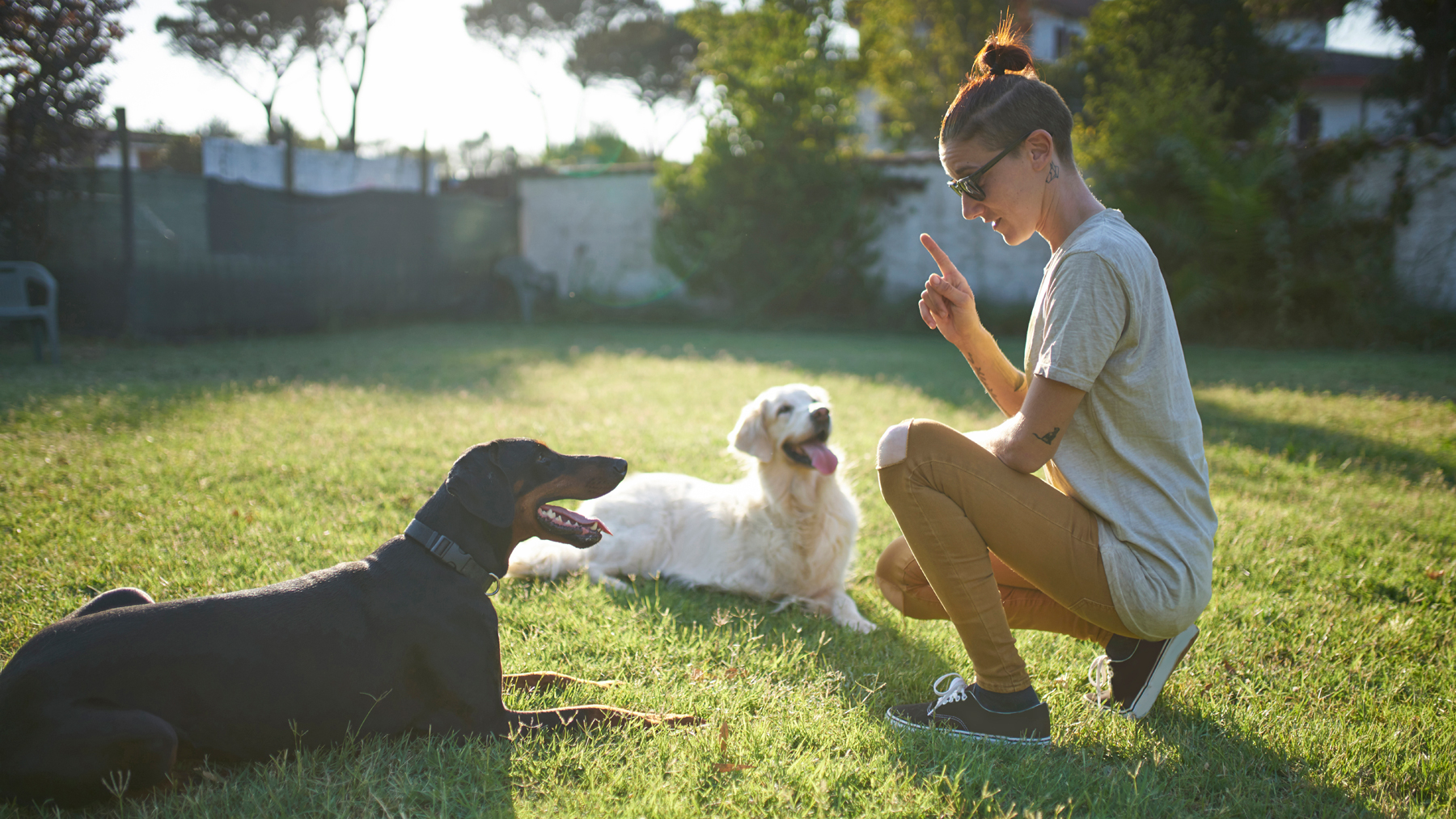Is your dog losing interest in training? Try this trainer's simple tip to boost their motivation
Not every pup will be engaged and confident when training, but here’s how to help them – while having fun too

Get the best advice, tips and top tech for your beloved Pets
You are now subscribed
Your newsletter sign-up was successful
Some dogs are more confident and engaged than others. If your pup isn’t confident or doesn’t seem engaged in training sessions, this might just be down to their individual personality, or perhaps negative previous experiences – particularly if your dog is a rescue.
But what can you do if your dog lacks confidence, engagement, and motivation or food drive during training – even when you’ve got some of the best dog treats in your hand?
Jamie Huggett, or Jamie the Dog Trainer, head dog trainer at Southern Cross K9, has offered some advice in a recent Instagram post, based on his experiences with a dog he’s been working with.
A post shared by Jamie The Dog Trainer (@jamiethedogtrainer)
A photo posted by on
Huggett introduces us to Keeper, and explains that the dog didn’t have much food drive, and didn’t appear interested in himself during training sessions either. But Huggett started to turn Keeper around through play.
“I really wanted him to loosen up a bit,” explained Huggett, “He was very very serious. So for the first few days, that’s pretty much all we did.”
He then began to add a ball into play sessions, something that made Keeper slightly interested at first, but then became one of his favorite things.
Huggett’s next step was to work on building Keeper’s food drive, something he did by adding value to the food rewards he gave the pup. This can include things like throwing food in the air for your dog to catch or getting your dog to chase the food that’s in your hand.
Get the best advice, tips and top tech for your beloved Pets
He explains that, when you do so, dogs aren’t just working for the food, but for the fun and the movement too. And from here, canines should go on to associate food with other fun things, making training dogs with treats a whole lot easier.
And remember to keep training sessions exciting and interesting! “Your training sessions should be fun, free-flowing, and with minimal stops,” says Huggett. “The main emphasis here is building a more engaged dog – if we get boring at all, at any point, we’ll start to lose them, so keep them in the game.”
For this reason, Huggett prefers to teach tricks when he begins working with a dog, before moving on to more boring behaviors later, when your dog is more engaged and used to having fun during training sessions.
It can be easy to feel frustrated when training a dog who lacks confidence, engagement, and motivation. But if you can make it fun for both of you, you’ll never look back!

Adam is a freelance journalist specialising in pets, music and culture, and mental health and wellbeing. He investigates and writes the large majority of news on PetsRadar, and collaborates with veterinary experts to produce informative pet care content.
Adam has a journalism degree from Southampton Solent University and a masters degree in Magazine Journalism from Cardiff University. He was previously senior editor at dog advice website DogTime.com, and has also written for The Independent, GoodToKnow and Healthline.
He owns two rescue cats, Bunny and Dougie, and has also previously had a rabbit, fish and Roborovski dwarf hamsters.
